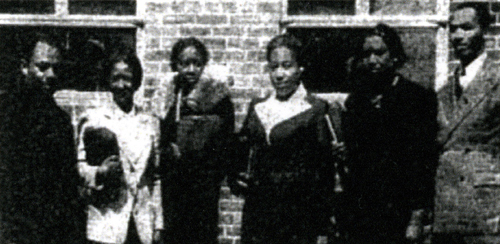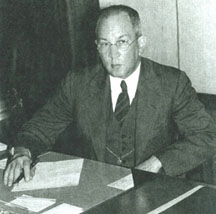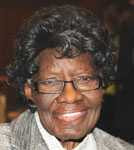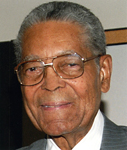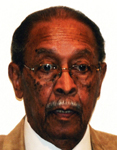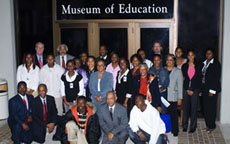

Booker T. Washington High School
|
|||||||||||||||||||
In 1940, Booker T. Washington High School was invited to participate in the Association of Colleges and Secondary Schools for Negroes’ Secondary School Study. Selected and funded by the Rockefeller Foundation, sixteen of the most distinguished black high schools in the United States participated in an experimental program to reexamine administrative, curricular, and instructional practices. The University of South Carolina’s Museum of Education is pleased to feature Booker T. Washington High School and its participation in the study.
|
|||||||||||||||||||
|
Letter of Invitation to Participate in the Study January 23, 1940 |
||||||||||||||||||
| While the Association sought to achieve accreditation for its member schools and to make strides for equitable support—separate AND equal—for black education, some educators believed teachers were not involved in progressive education’s “stream of educational ideas” and, thus, were placing too much emphasis on traditional instructional practices. For this reason, the Rockefeller Foundation invited distinguished schools to help define promising practices and to serve as a laboratory for determining goals for black youth. | |||||||||||||||||||
With oral history interviews conducted in between the years 2008-2015 |
|||||||||||||||||||
Fannie Phelps Adams |
|
||||||||||||||||||
With special thanks to Anthony Edwards and Bobby Donaldson of the University of South Carolina and Fannie Phelps Adams. Archival materials from the B. T. Washington High School Foundation, The South Caroliniana Library, and the Museum of Education of the University of South Carolina were used in this research. |
|||||||||||||||||||
Anthony Edwards
|
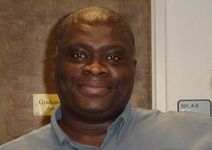 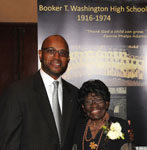 |
||||||||||||||||||
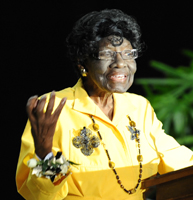 “Booker was a school that developed the whole child— personal traits, needs, interests, and skills necessary for success in life. Teachers viewed themselves as progressives. We talked about John Dewey but did not use the term progressive education. We were progressives and put the theories into practice without having to say the ideas that would have caused suspicion. We just did it and were guided by our principal, Mr. Simmons.” Fannie Phelps Adams, who began teaching at the school in 1943 |
|||||||||||||||||||
The Museum of Education’s Web Exhibitions center primarily on the academic life of individual schools during the 1940s and early 1950s, the focus of the Secondary School Study. Our vignettes serve not to lessen the accomplishments and accolades from prior or subsequent decades nor do they diminish the significance of the social and athletic dimensions of school life. Instead, the Museum presents web exhibitions of the Secondary School Study schools as a way to feature the experimental efforts of progressive educators during the 1940s. Since these vignettes were not prepared to serve as school histories, we encourage alumni and historians to prepare their own comprehensive school accounts, histories, and memoirs of these important educational institutions. The Museum of Education’s Web Exhibitions have been prepared for a general audience and have not used professional terminology from the field of education. Our accounts are intentionally free of detailed bibliographic citations. The curator is currently writing a scholarly account of this project that follows accepted bibliographic practices. |
|||||||||||||||||||
 |
Further, these exhibitions are conceived within a tradition of progressive education where a fruitful experience raises as many questions as it answers. Thus, the information on the various sites has been crafted intentionally to be suggestive—to allow important questions "to float" through the exhibitions rather than to be answered with a false sense of certainty. These sites are works-in-progress and represent an "educational research charrette" as additional historical material is discovered and fresh memories, recollections, and insights come forth by participants and researchers. |
||||||||||||||||||

an institutional member of the International Coalition of Sites of Conscience
Museumofed@gmail.com

